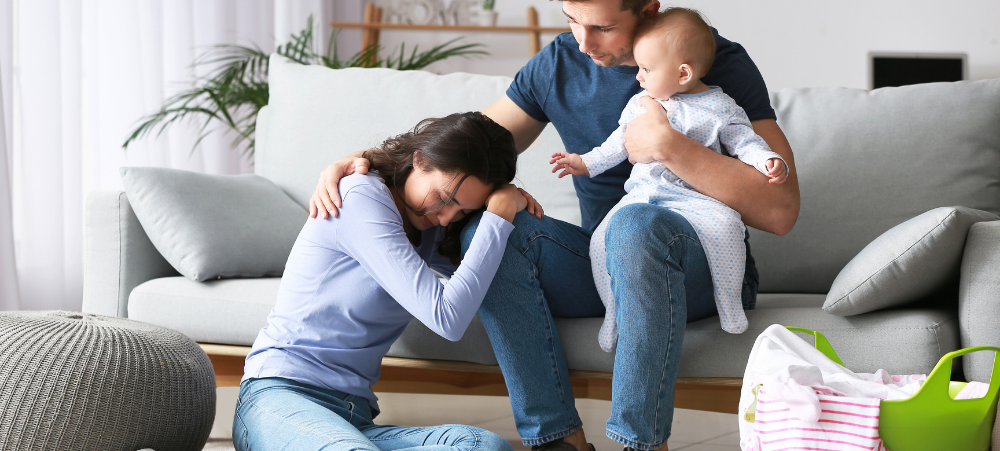As a new mom, the birth of your baby is a beautiful and exciting time, but there is a darker side to childbirth. Postpartum depression affects about 15% of moms after delivery, and while it is a serious disorder it can be overcome through treatment.
What is Postpartum depression?
Feelings of anxiety, sadness and fatigue are common after birth and are often referred to as the ‘baby blues’ and should subside within the first two weeks. However, if these feelings stick around for longer, you could be experiencing postpartum depression.
Restlessness, mood swings, insomnia, irritability, disconnection from your baby and feeling of worthlessness are all red flags for postpartum depression. Some moms feel guilty or ashamed to be feeling this way, however PPD can affect any woman.
Don’t be afraid to reach out for help, as PDD is treatable through both medicated and unmedicated options.
What should I do if I have the symptoms of Postpartum Depression?
The good news is that PPD is treatable. There are a variety of common types of treatment, which depend on the type and severity of symptoms. Treatment can include counselling, therapy groups, antidepressants and hormone therapy. Self-help groups can be helpful, as it allows you to connect with others who have experienced similar problems and stop feelings of isolation.
Recovery time will also vary from mother to mother, but untreated the disorder will last much longer and can interrupt mother-child bonding. Getting help does not mean you are a bad mother, it is important to reach out if you are feeling depressed.
Postpartum Psychosis
In rare cases moms can develop postpartum psychosis. This should be treated as a medical emergency, and it is essential that you receive help right away. Symptoms include paranoia, delusion and erratic/disorganised behaviour.
How to deal with mental health after pregnancy
Your mental health is critical to you and your child’s well-being. If you are worried about PPD it is important to get professional help.
However, you can help your mood by slowly getting back into exercise, setting aside time for yourself and leaning on those around you for support. It is important to stay connected to family and friends so that you don’t feel alone.
For 2025 we have a renewed Female Health Programme:In collaboration with CareWorks, it’s accessible to all female members aged 18 and above, with an emphasis on preventative care and early detection of female-specific health issues. In addition, we have an enhanced Maternity Programme to support expecting mothers. This includes early identification of and weekly engagement for high-risk pregnancies, post-childbirth care and associated mental health follow-up calls for new mums, given the prevalence of pre and postnatal depression. Also, milestone reminders for children under 3 and cover for antenatal vitamins through savings, day-to-day benefits or the Benefit Booster
Bonitas Medical Fund
0860 002 108
View Website: www.bonitas.co.za
- Premature birth – what to expect - November 21, 2025
- Why should I breastfeed my baby, and what if this is not an option? - November 14, 2025
- Why medical aids must go beyond medicine in managing diabetes - November 13, 2025





